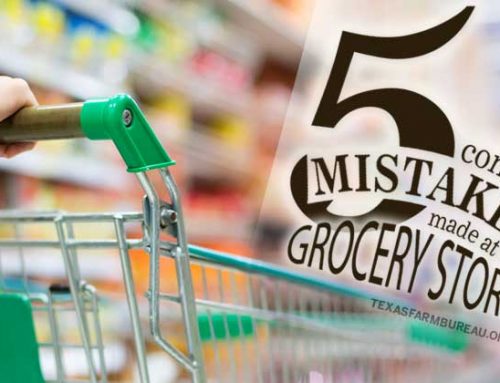By Amanda Hill
Whether you live in Central Texas, Dallas, Lubbock or Houston, Texans could play the same weather forecast on repeat–”It’s hot, it’s dry and there’s no end in sight.” The real trouble is, the extreme heat has deeper consequences than just making almost 25 million people very sweaty. The current Texas drought is a serious problem, and pretty soon we all could feel some real impact on our daily lives.
Today we’re in one of the most severe droughts Texas has seen in decades. This year, the entire state only has received a little more than 6.5 inches of precipitation. That’s a lot less than the historical average of 16 inches by this time of year. Some major effects are devastatingly obvious. Streams are merely trails of rocks, lawns look like blankets of straw and lakes might be confused with barren ponds.
But besides looking (and feeling) dry, these drought conditions could hit our wallets hard. In the coming months, here are some ways the drought could impact all Texans:
- Higher utility bills. Chances are you’re already feeling this one. Your lawn may be gulping up more water than usual, and a steady stream of air conditioning certainly isn’t cheap. It seems the hotter it gets outside, the higher the water and electricity bills become.
- Water rationing. Forget paying more for water, we may not even have water to use at all. Some areas of Texas already have started water restrictions, and extreme cases could lead to rationing a set amount of water per person.
- Electricity blackouts. A few metro areas have experienced these “rolling blackouts” before. Short power outages are enforced to stabilize the electricity grid in Texas. The heat causes Texans to use more power, putting strain on the grid. The rolling blackouts would ease demand but also could leave many people sweating it out until the power returns.
- Higher food prices. Unfortunately, the drought could mean shoppers will start to see higher prices at the grocery store. According to experts from Texas A&M University, Texas farmers and ranchers have been struggling with billions of dollars in crop losses this year. Many of them have had entire fields ruined by extreme heat and little rain. With less supply available, consumer demand will drive prices higher, which could have costly implications for all of us in the coming months.
Rain is something we humans just can’t control, but we all can do our part to conserve the resources we do have. If your city has enforced water restrictions, follow them. Fix leaky faucets and showers. Turn off the lights and television when you leave the room. They’re simple things that add up to make a difference.
If you’re interested in learning more about the drought, visit Texas Farm Bureau’s drought coverage site, which includes news clips, videos and interviews with farmers and ranchers who are navigating the heat and abnormally dry climate to grow fresh, healthy Texas crops.
And, until a substantial rain falls, let’s all pray for rain.











Obviously the most heartbreaking decisions must be made regarding the livestock that must be sold. The livestock on South Texas ranches have survived “culling” during several recent droughts and are high quality animals that are being slaughtered by the thousands……..this trend must continue until it rains. To compound this heartbreaking situation, the widespread drought has burnt hay pastures to the point that there is no hay available for winter, further reducing the livestock numbers.
Wildlife also suffers as snakes, rabbits, coyotes, hawks, vultures and deer have moved into close proximity to rural families to be near water and food sources. Armadillos, grasshoppers, moles and gophers are much more evident as they move in to rural yards to live near watered grass. Many fish are lost when tanks and ponds lose water and fish birds and other predators eat them before the water dries up. Deer line the highways at night and scores of them are killed as they cross the highways or are blinded by headlights as they search in the darkness for mouthfuls of grass.
Tom, unfortunately, all of that is exactly true. This drought has been devastating for farmers and ranchers, Texas crops and wildlife. As for the livestock culling, a sharp drop in supply will affect consumer beef prices down the line. Without those high quality breeding animals, supply will be much lower in upcoming months/years. Overall, it’s just a terrible situation. We’ll be thinking of you men and women in the field as we hope and pray for rain. Hang in there!
[…] Texas Farm Bureau President Kenneth Dierschke, a San Angelo farmer, today, and he told me that the extreme drought conditions in Texas are affecting farmers’ and ranchers’ crops and livestock. Without enough water, ranchers have […]